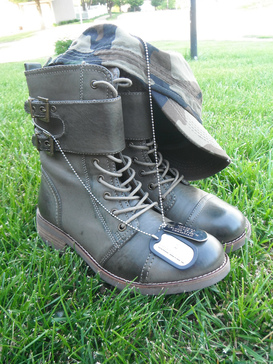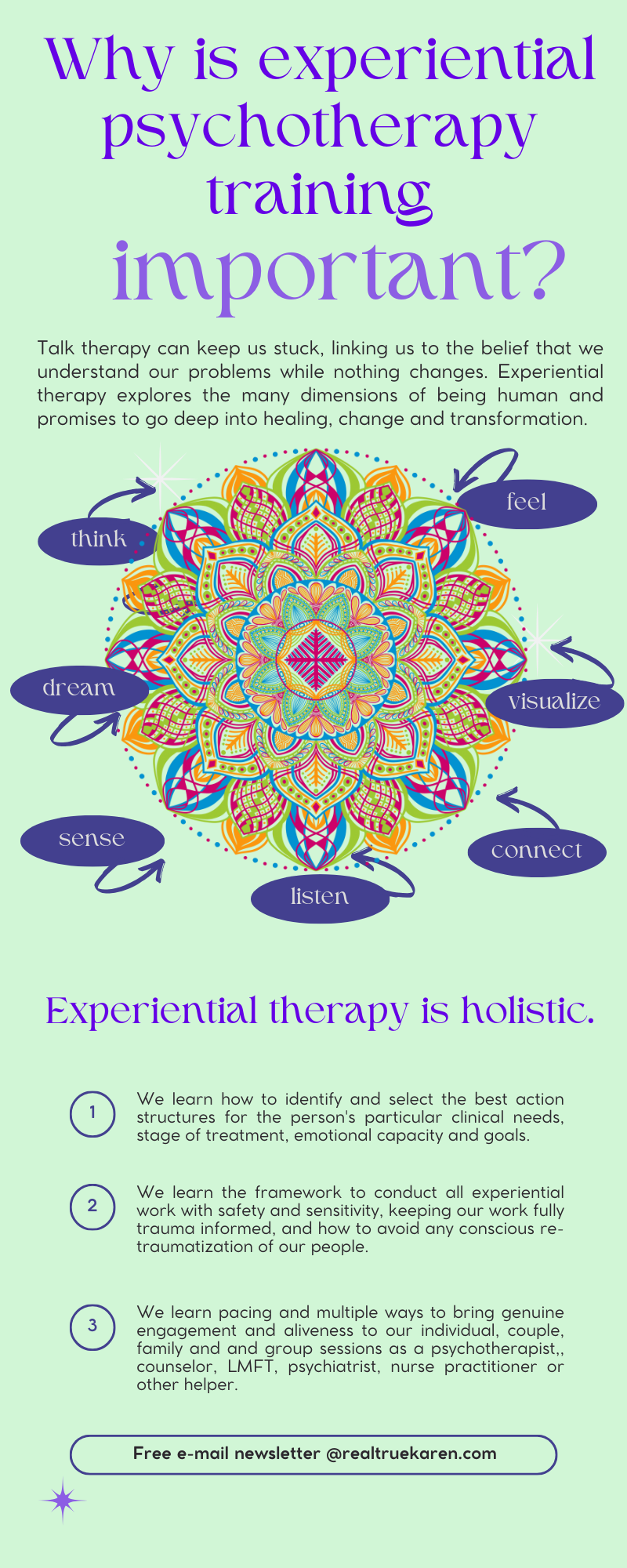|
By Karen Carnabucci, LCSW, TEP
Experiential psychotherapy is based on the notion that a person cannot make a significant change until a shift happens within the experience of the person. The therapist who is practicing experiential therapy focuses on facilitating the transforming experience with the collaboration of the person -- the one we usually call the client although I continue to insist that the word "client" is too sterile and too mundane to describe this kind of experience. As the person gives themselves to the experience, of how it has been and how it is now, chance occurs in the therapeutic session. experience the difference from how it was before, and how it is now. Most psychotherapists do experiential therapy to some degree, in that what our people experience in the here-and-now therapeutic relationship makes a significant difference in their world.
0 Comments
By Karen Carnabucci, LCSW, TEP
Traditional talk therapy helps the suffering person understand what contributes to his or her eating disorder or dissatisfaction with body image. However, conventional talk therapy usually leaves the person with the knowledge of “why” the eating disorder is present but without changing the behavior. Psychodrama, the action method developed by Dr. J.L. Moreno and his wife Zerka T. Moreno, teaches the importance of human problems in the context of the roles that are played out in life. With the opportunity to change these roles to more healthy behaviors, we have found that tremendous healing is available with psychodrama. With the perspective of roles, rather than pathological behaviors, we identify sufferers as the one who binges, the one who restricts food, the one who purges, the one who isolates, the one who is anxious, the one who diets, the one who fears being fat, and so on.  By Karen Carnabucci, LCSW, TEP Years ago, a veteran told me, "I was never really prepared for the reality of war." As a psychotherapist, I often think about his powerful observation when I work with people who have suffered various kinds of trauma. His comment continues to prove true as I hear stories from people who have been affected deeply by trauma, whether war, abuse, crime or a severe accident. There are several realities to the experience of trauma, which we can describe generally as a situation that is a shock to the nervous system of the human being. The experience calls upon all of our resources -- physical, mental, emotional and spiritual -- to survive. After survival, however, the person's injured nervous system continues to feel the reverberations of the event. These after-effects may show up in many ways. Hypervigilance. Keeping highly watchful is an important survival skill in wartime. In ordinary life, however, this watchfulness creates huge problems; the veteran is unable to relax and perhaps may find himself or herself suspicious of others, having difficulty in crowds and certain situations, even close relationships. |
AuthorKaren Carnabucci, LCSW, TEP, is an author, trainer and psychotherapist who promotes, practices and teaches experiential methods including psychodrama, Family and Systemic Constellations, sand tray, mindfulness and Tarot imagery. Archives
December 2023
Categories
All
|


 RSS Feed
RSS Feed